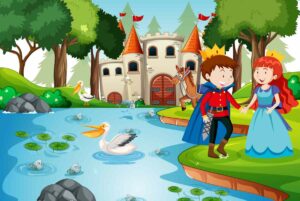Panchatantra Stories in English: Panchatantra Stories are a timeless collection of ancient Indian folktales that have captivated readers for generations. These engaging tales are not just entertaining—they also convey valuable life lessons. The word “Panchatantra” means “Five Principles” in Sanskrit, reflecting the stories’ purpose of sharing wisdom through the adventures of both animals and humans.
Through imaginative plots and clever characters, Panchatantra Stories teach children important values such as morality, practical knowledge, and wisdom in a fun and accessible way. Each story imparts lessons that remain relevant across time, offering an enjoyable and educational experience for kids of all ages.
Panchatantra Stories in English
The King and the Monkey
Once upon a time, a king had a pet monkey. This monkey was like the king’s helper. But, some of the king’s ministers didn’t like how much attention the monkey was getting. They tried talking to the king about it, but he didn’t listen.

One sunny afternoon, the king wanted to take a nap. He told the monkey to make sure no one disturbed him. While the king was sleeping, the monkey saw a pesky fly on the king’s bed. No matter how hard the monkey tried to shoo it away, the fly kept coming back.
Feeling a bit annoyed, the monkey had an idea. He took the king’s dagger and tried to hit the fly to teach it a lesson. But, oops! The fly flew away, and the dagger accidentally hurt the king instead. The poor monkey didn’t understand what went wrong.
The moral of the story is: “Be careful when trying to solve a problem, as your actions may unintentionally lead to bigger troubles. Think before you act to avoid making things worse.”
Dharmabuddhi and Papabuddhi
Once upon a time, two friends, Dharmabuddhi and Papabuddhi, had some money. They decided to keep it safe by burying it in the ground. But, one night, Papabuddhi got greedy and took the money for himself. To cover up, he pointed fingers at Dharmabuddhi, saying he was the thief.
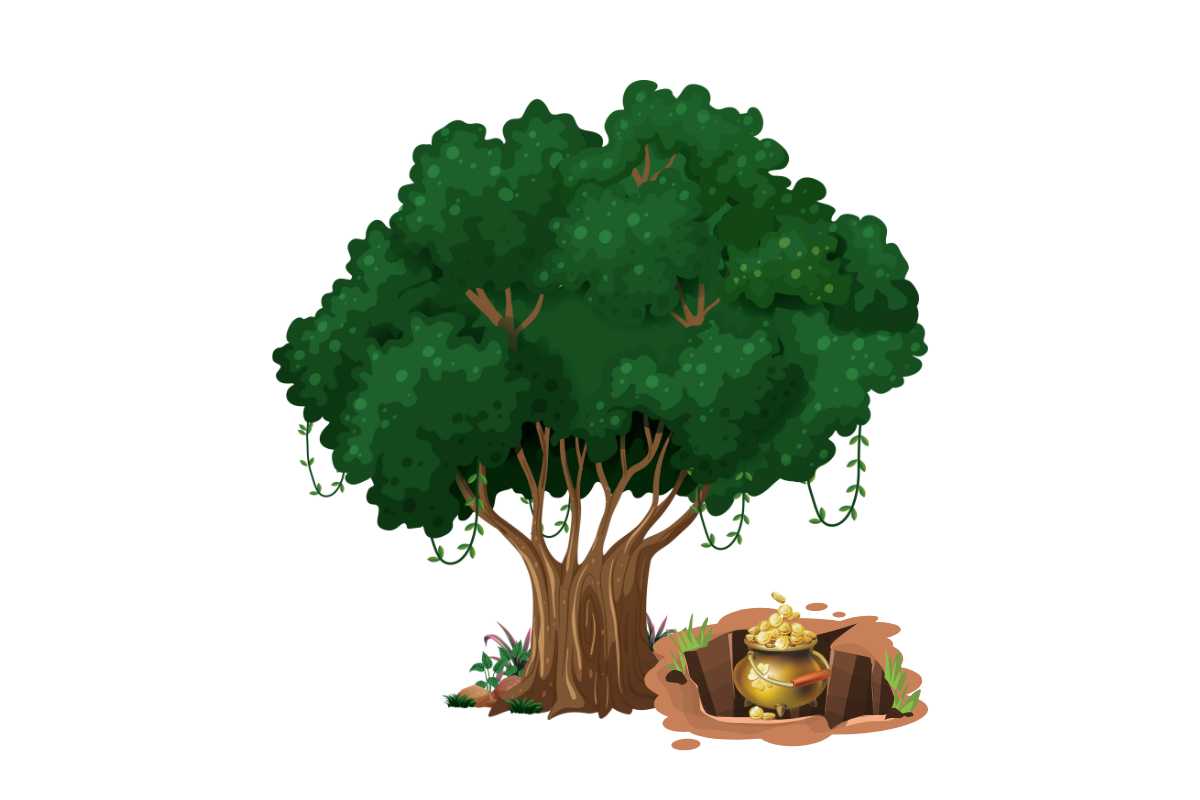
Not knowing what to do, Dharmabuddhi and Papabuddhi went to the king to seek justice. Papabuddhi cleverly claimed that the king of the forest had seen Dharmabuddhi stealing the money. The king decided to settle the case the next day.
Papabuddhi had a sneaky plan. He told his father to hide near a big tree. He instructed him to shout Dharmabuddhi’s name when asked who had stolen the money. The next day, the two friends and the king went to the place where the money was buried. They asked, “Who stole the money?” A voice from the hiding place said, “Dharmabuddhi.”
Dharmabuddhi felt something was not right. The king’s men pulled Papabuddhi’s father out of hiding, and it was clear that he was the one who had spoken. The king punished Papabuddhi for being dishonest, and justice was served. The story teaches us that telling the truth is important, and tricks and lies can lead to trouble.
The moral of the story is: “Honesty is the best policy. Trying to deceive others may work for a while, but eventually, the truth comes out, and lies lead to trouble. It’s better to be truthful and face the consequences.”
The Swan and the Owl
Once upon a time, there was an owl and a swan who were the best of friends. One day, the swan invited the owl to stay with him for a few days. They had a great time together, and when it was time for the owl to go home, he invited the swan to visit him.

Months later, the swan went to see the owl. They were excited to be together again and spent happy days. One day, while sitting outside the owl’s house, they noticed some travelers camping near a tree. The owl started hooting, and the travelers got scared, thinking something bad would happen. They decided to get rid of the owl, thinking it would bring them bad luck.
The innocent swan didn’t understand what was going on. One of the travelers aimed a bow and arrow at the owl, trying to hurt it. Sadly, he missed the owl and accidentally hit the swan instead. The poor swan got hurt. In pain, she left the owl’s house and never came back.
The story teaches us that sometimes, innocent actions can lead to unexpected consequences. Being careful and understanding the situation is important.
The moral of the story is: “Be careful with your actions, as they can have unintended consequences. In this tale, the owl’s hooting meant harmlessly, leading to the swan’s injury. It reminds us to think before we act and consider the potential outcomes of our choices.”
The Merchant’s Lie
Once upon a time, there was a trader who needed some money. He went to a merchant and asked to borrow money by pledging his iron balance. The merchant agreed. When the trader came back to return the money, the greedy merchant lied and said that rats had eaten the iron balance.
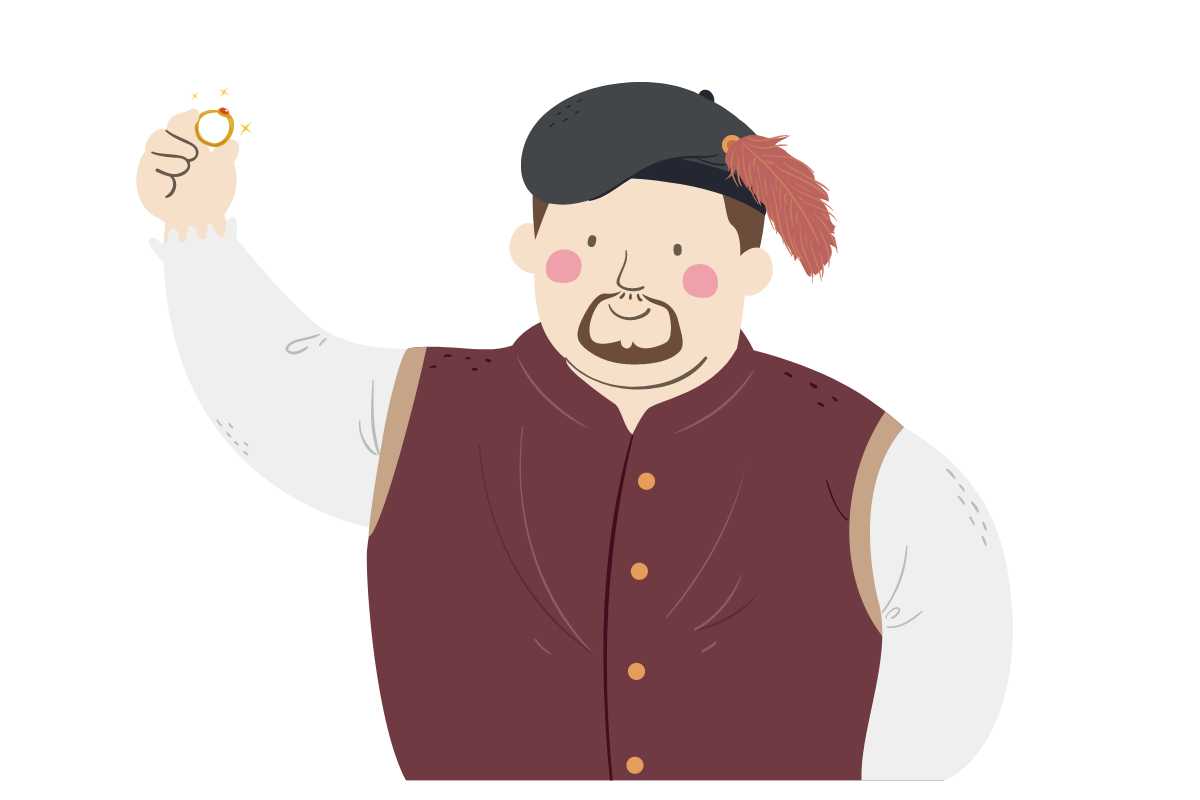
The trader didn’t like being lied to, so he decided to teach the merchant a lesson. He told the merchant that he needed some help and asked if his son could come along. The merchant agreed, and the trader took the boy and hid him in a cave. Then, he went back to the merchant and said, “Oh no! A hawk carried away your son!”
The merchant got scared and threatened to take the trader to the king’s court. But the clever trader replied, “Sure, take me to the king. I’ll just tell him that if rats can eat an iron balance, why can’t a hawk carry a young boy?” The merchant realized he was caught in his lie and apologized.
In the end, the trader got back his iron balance, and the merchant learned a lesson about being dishonest. The story teaches us that honesty is important and that lying can lead to trouble.
The moral of the story is: Lying and dishonesty can lead to consequences and trouble. This story teaches us the importance of telling the truth and being truthful in our actions.”
The Bed Bug and the Poor Flea
Once upon a time, in a palace, there was a little bed bug that lived in the folds of the soft, white bedspread. One day, a flea hopped into the bedroom. The curious bed bug asked the flea why he had come.

The flea said he wanted to taste royal blood and asked if he could stay. After thinking about it, the bed bug agreed. He suggested that the flea should wait until the king was asleep.
Just as the king entered the bedroom, the flea got too impatient. Instead of waiting, it flew and bit the king. The king got mad and told the servants what had happened. The flea quickly flew away, escaping trouble.
However, the poor bed bug, hiding in a corner, was caught by the servants. They threw him out of the palace because of the flea’s mischief. The story teaches us about being patient and waiting for the right time.
The moral of the story is: “This story teaches us the importance of being patient and waiting for the right moment instead of rushing into things.”
The Weaver and the Princess Charming
Once upon a time, there were two friends – a weaver and a carpenter. One day, the weaver fell in love with a beautiful princess. Excited about marrying her, he shared his feelings with the carpenter, his good friend.
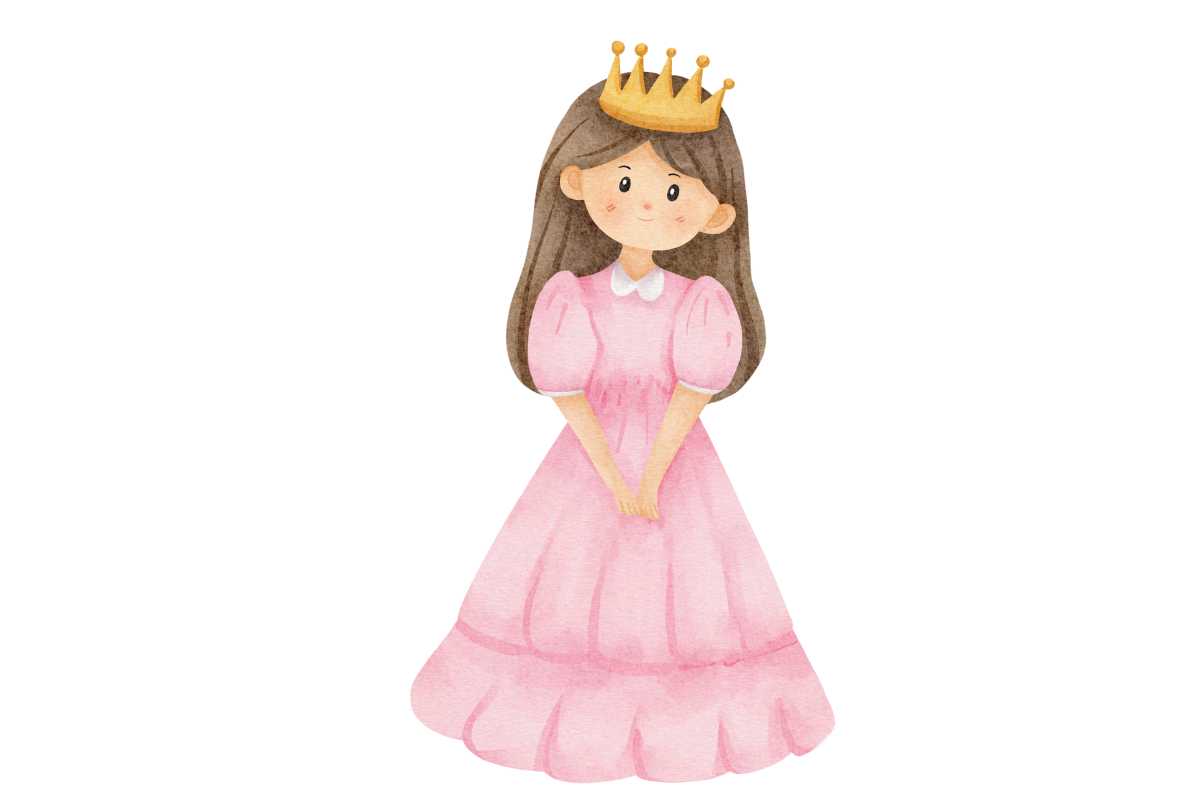
To impress the princess, the carpenter crafted a giant mechanical bird. He taught the weaver how to operate it using a lever. The plan was for the weaver to fly the bird outside the princess’ chamber and express his desire to marry her.
When the weaver operated the mechanical bird, the princess was astonished. Thinking he was some godly being, she agreed to marry him. The weaver was overjoyed with the success of the plan.
Years later, the kingdom faced a threat as it was attacked by enemies. The king, aware of the weaver’s bravery, asked him to lead the battle. Faced with this daunting task, the weaver turned to God for help. Miraculously, God answered his prayers, aiding him in the fight against the enemy and ultimately saving the kingdom.
The moral of the story is: This story teaches us about friendship, creativity, and the importance of seeking help in times of need.
A Teacher’s Advice
Once upon a time, there was a teacher who advised his students never to be cruel to anyone. However, the pupil didn’t pay much attention to this wise advice and instead became a hunter, finding pleasure in hurting innocent animals.
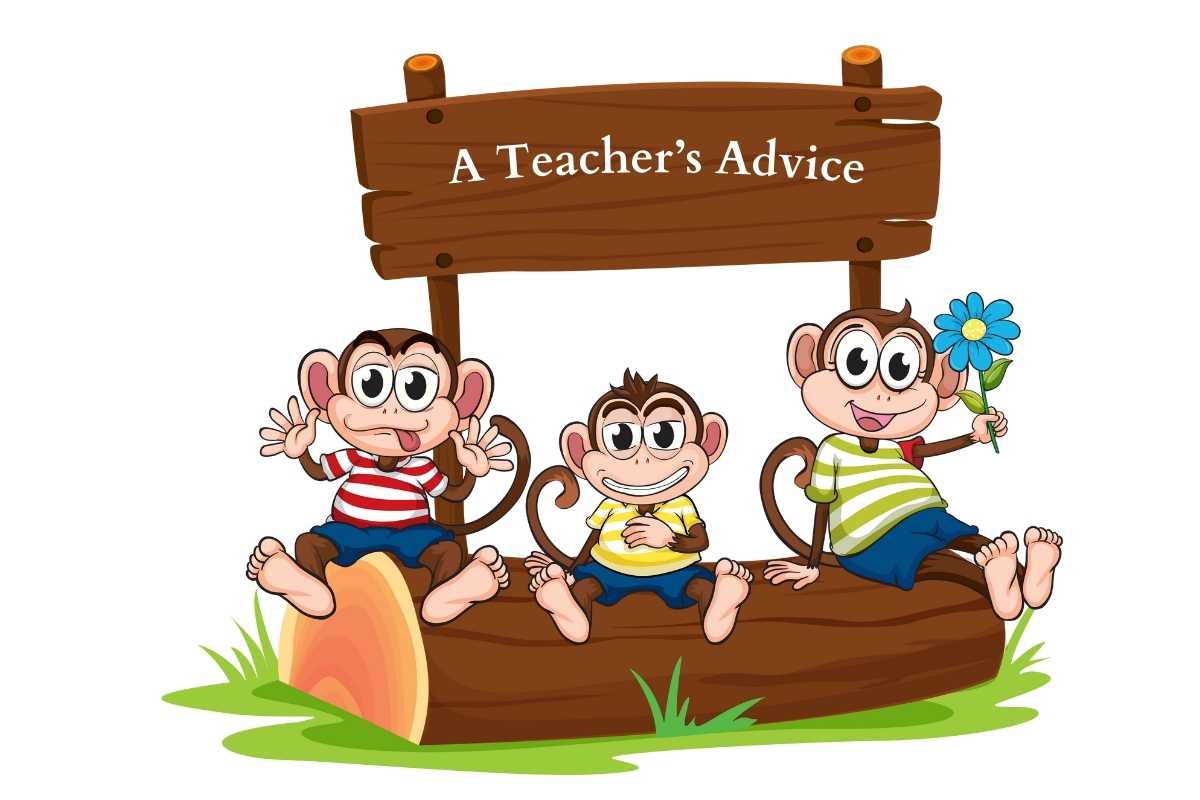
One day, as he was walking through a forest, he spotted three monkeys. Ignoring any feelings of compassion, he aimed his bow and arrow at them, shooting and severely injuring the poor creatures. Delighted by his actions, he continued on his way home.
However, the joy didn’t last long. The sky darkened, and heavy rain poured down as he reached home. To his dismay, he discovered that lightning had struck his house, causing damage. Even worse, his own family, including his wife and children, were hurt.
During this tragedy, a pillar collapsed and struck him on the head, causing him great pain. As he cried out in agony, he remembered the words of his teacher, regretting his cruel actions and the consequences that followed.
The moral of the story is: This story serves as a reminder about the consequences of cruelty and the importance of heeding wise advice. A cruel attitude only leads to destruction.
The Ungrateful Mouse
Once upon a time, there was a wise sage who lived in a forest. He had magical powers from meditating. One day, while he was deep in meditation, a little mouse came running to him, seeking help. The mouse explained that a cat was chasing him, and he needed protection.

Feeling compassionate, the sage transformed the mouse into a cat to keep it safe. However, after some days, the cat returned, worried because now dogs were chasing it. So, the sage transformed the cat into a dog to shield it from the new danger.
Later, the dog came back, saying that tigers were threatening it. The kind sage changed the dog into a tiger to help it survive. But, one day, the tiger approached the sage, expressing a desire to eat him because it was hungry.
Understanding that the mouse-turned-cat-turned-dog-turned-tiger had not learned gratitude, the sage decided to teach it a lesson. Just as the tiger was about to pounce on the sage, he transformed it back into a tiny mouse.
The moral of the story is: “Gratitude is important. Empowering those who are least deserving might put you at risk.
The Shepherd Boy
Once upon a time, in a land far away, there was a young shepherd boy who took care of his sheep near a big mountain. He often felt lonely and bored while his sheep were busy eating grass. He didn’t know what to do with his free time.

One day, the boy had an idea to have some fun. He yelled, “Wolf, Wolf!” just to see what would happen. When the nearby villagers heard him, they quickly came to help, worried that a wolf might be attacking the sheep. But the boy just laughed and teased them. This made the villagers upset, but the boy enjoyed the prank and did it a few more times.
Then, one unfortunate day, a real wolf showed up and attacked the sheep. The boy shouted for help again, hoping the villagers would come to his rescue. However, this time, the villagers didn’t believe him because of his past pranks. They thought he was just joking again and didn’t rush to help.
Sadly, the wolf scared away all the sheep, and the shepherd boy was left feeling very sorry for his foolish actions. He learned a valuable lesson about not making jokes about serious things. From that day on, he regretted what he had done and went home with empty hands, realizing the importance of telling the truth and not playing tricks on others.
The moral of the story is: Honesty is important. If you play tricks and lie, people may not believe you when you say the truth and really need help.
The Ungrateful Man
Once upon a time, a man was walking in the forest when he saw a tiger, a monkey, a snake, and a goldsmith at the bottom of a well. The man decided to help them. He rescued the animals, and they were grateful, but they warned him not to help the goldsmith.

As the man continued his journey, the monkey gave him tasty fruits, and the tiger gave him shiny jewels. The man thought of selling the jewels for money, so he asked the goldsmith for help. However, the goldsmith showed the jewels to the king, claiming they belonged to the queen. The king thought the man was a thief and locked him up in prison.
While in prison, the snake came to the man and said it could bite the queen, and only he could cure her. The man agreed and did as the snake told him. The queen, who was sick, got better. The man then told the whole story to the king, who realized the goldsmith had been dishonest. The king decided to imprison the goldsmith instead, and the man was set free.
The moral of the story is: Helping others without expecting anything in return is a good thing. Being truthful and doing the right thing, even when others might not, can lead to positive outcomes in the end.
Thank You for Reading the Story from here ☺ if you really wanna get updated, You could also join us on Pinterest by clicking the link below.
| Click Here | |
| Homepage | Click Here |



